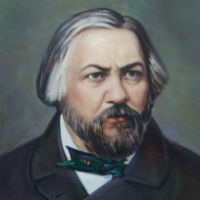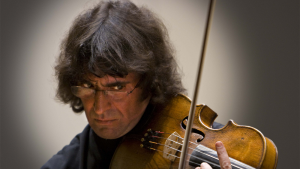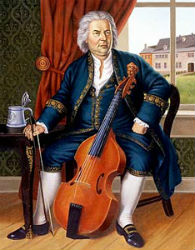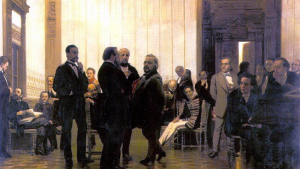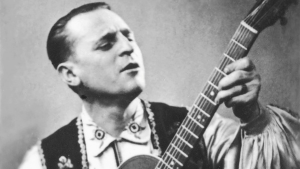The stars of our age: women musicians
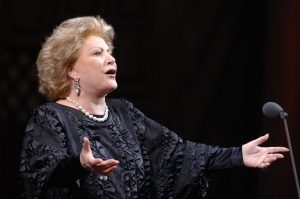 Veronika Dudarova, Sofia Gubaidulina, Elena Obraztsova – names known not only in Russia, but also abroad. We remember the great women musicians of the twentieth century.
Veronika Dudarova, Sofia Gubaidulina, Elena Obraztsova – names known not only in Russia, but also abroad. We remember the great women musicians of the twentieth century.
Veronika Dudarova was born in Baku in 1916. In 1938 she graduated from the piano department of the music school at the Leningrad Conservatory and made an unusual decision for that time – to become a conductor. In the USSR, then there were still no women who decided to go to the symphony orchestra. Veronika Dudarova became a student of two masters – Leo Ginzburg and Nikolai Anosov.
She debuted as a conductor at the Central Children’s Theater in 1944. Then she worked in the opera studio of the Moscow Conservatory.
In 1947, Veronika Dudarova became the conductor of the Moscow State Symphony Orchestra, and in 1960, she became the chief conductor and artistic director of this group. The repertoire of Dudarova gradually included a huge amount of works – from Bach and Mozart to Alfred Schnittke, Mikael Tariverdiev, Sofia Gubaidulina.
In an interview, she repeatedly talked about the bloody rehearsals, that sometimes it is necessary to “severely achieve results.” In 1991, Dudarova organized and headed the State Symphony Orchestra of Russia. Her name is listed in the Guinness Book of Records: she became the first woman in the world to work with symphony orchestras for over 50 years.
The composer Sofia (Sania) Gubaidulina was born in 1931 in Chistopol. Her father was a surveyor, mother – a teacher of elementary grades. Soon after the birth of her daughter, the family moved to Kazan. In 1935, Sofia Gubaidulina began to study music. In 1949, she became a student of the piano faculty of the Kazan Conservatory. Later, the pianist decided to write music herself and entered the composition department of the Moscow Conservatory – first in the class of Yuri Shaporin, then Nicholas Peiko, and then in graduate school under the guidance of Vissarion Shebalin.
Colleagues Sophia Gubaidulina noted that already in the first writings she turned to religious images. This is especially noticeable in the 1970–80s score: “De profundis” for bayan, concert for violin “Offertorium” (Sacrifice), “Seven Words” for cello, bayan and strings. This was manifested in later writings – “Passion according to John”, “Easter according to John”, “Simple prayer”.
“My goal was always to hear the sound of the world, the sound of my own soul and study their collision, contrast or, conversely, similarity. And the longer I go, the clearer it becomes to me that all this time I have been searching for the sound that would correspond to the truth of my life. ”
Sofia Gubaidulina
In the late 1980s, Sofia Gubaidulina became a world-famous composer. Since 1991, she lives in Germany, but often comes to Russia. Today in different countries there are festivals dedicated to her, the best musical groups and soloists cooperate with her.
Elena Obraztsova was born in 1939 in Leningrad. When it came time to go to university, the girl chose the vocal faculty of the Leningrad Conservatory, although her father insisted that her daughter be engaged in radio engineering. In 1962, the student Obraztsova became the winner of the All-Union Glinka Singing Competition. Soon the young singer made her debut at the Bolshoi Theater – her first part was Marina Mnishek in Modest Mussorgsky’s “Boris Godunov”.
The Russian repertoire of the singer also included Marfa from the opera Khovanshchina by Musorgsky, Lyubash from Tsar’s Bride by Nikolai Rimsky-Korsakov, Helen Bezukhov from War and Peace by Sergei Prokofiev. Countess in the “Queen of Spades” by Pyotr Tchaikovsky, Elena Obraztsova performed throughout her musical career. The singer said: “I can sing it for a hundred years while the voice sounds. And it grows and acquires new colors. ”
One of the most famous roles from the foreign repertoire of Obraztsova became Carmen in the opera Bizet. Not only Soviet, but also Spanish students recognized her as the best performer of this party.
Partners of the Model were Placido Domingo, Luciano Pavarotti, Mirella Freni. An important event in the life of the singer was a meeting with the composer Georgy Sviridov: he dedicated several vocal compositions to her.
Eliso Virsaladze was born in Tbilisi in 1942. Her teacher at school and the conservatory was her grandmother – the famous Georgian pianist Anastasia Virsaladze. In 1962, Elisso received the third prize at the II International Tchaikovsky Competition. In 1966, after graduating from the Tbilisi Conservatory, she enrolled in the graduate school of the Moscow Conservatory in the class of Yakov Zak.
Since 1967, Eliso Virsaladze taught at the Moscow Conservatory. Among the graduates of her class are laureates of international competitions Boris Berezovsky, Alexey Volodin, Dmitry Kaprin.
